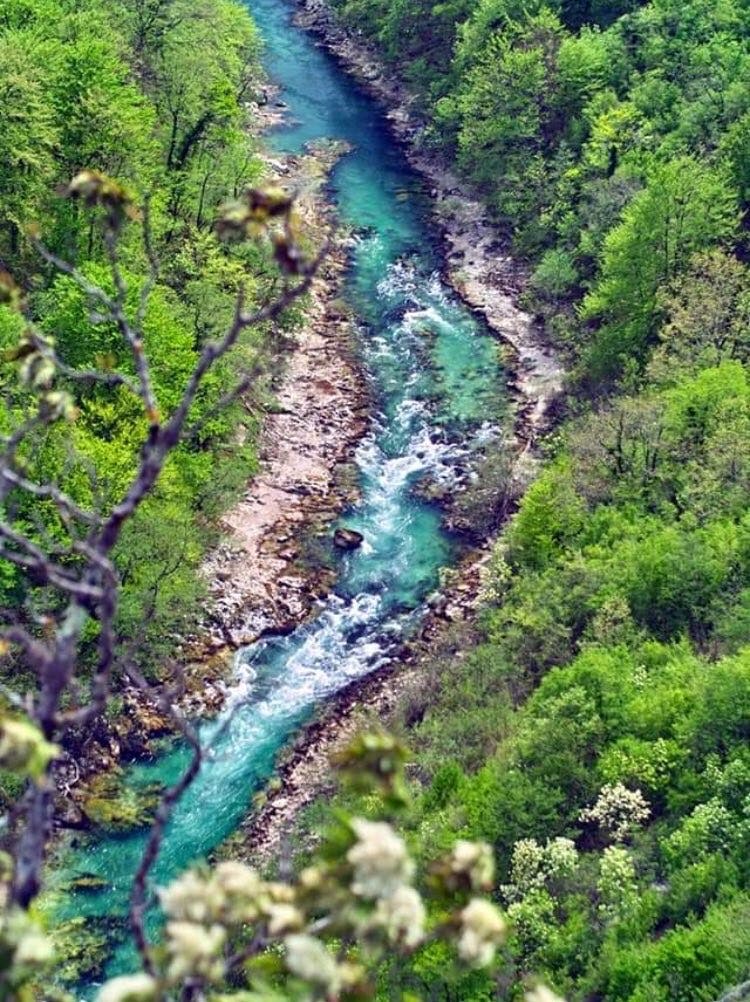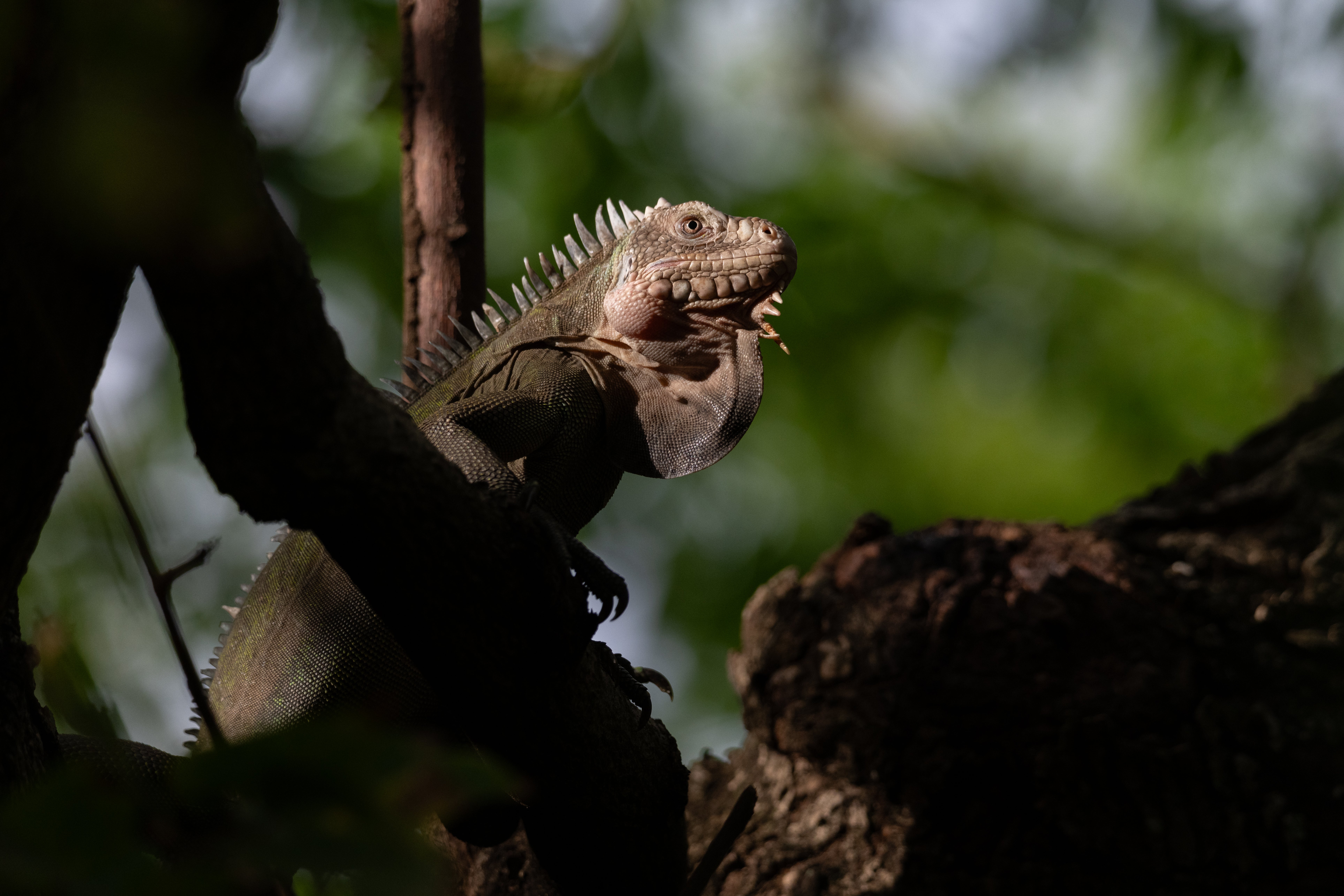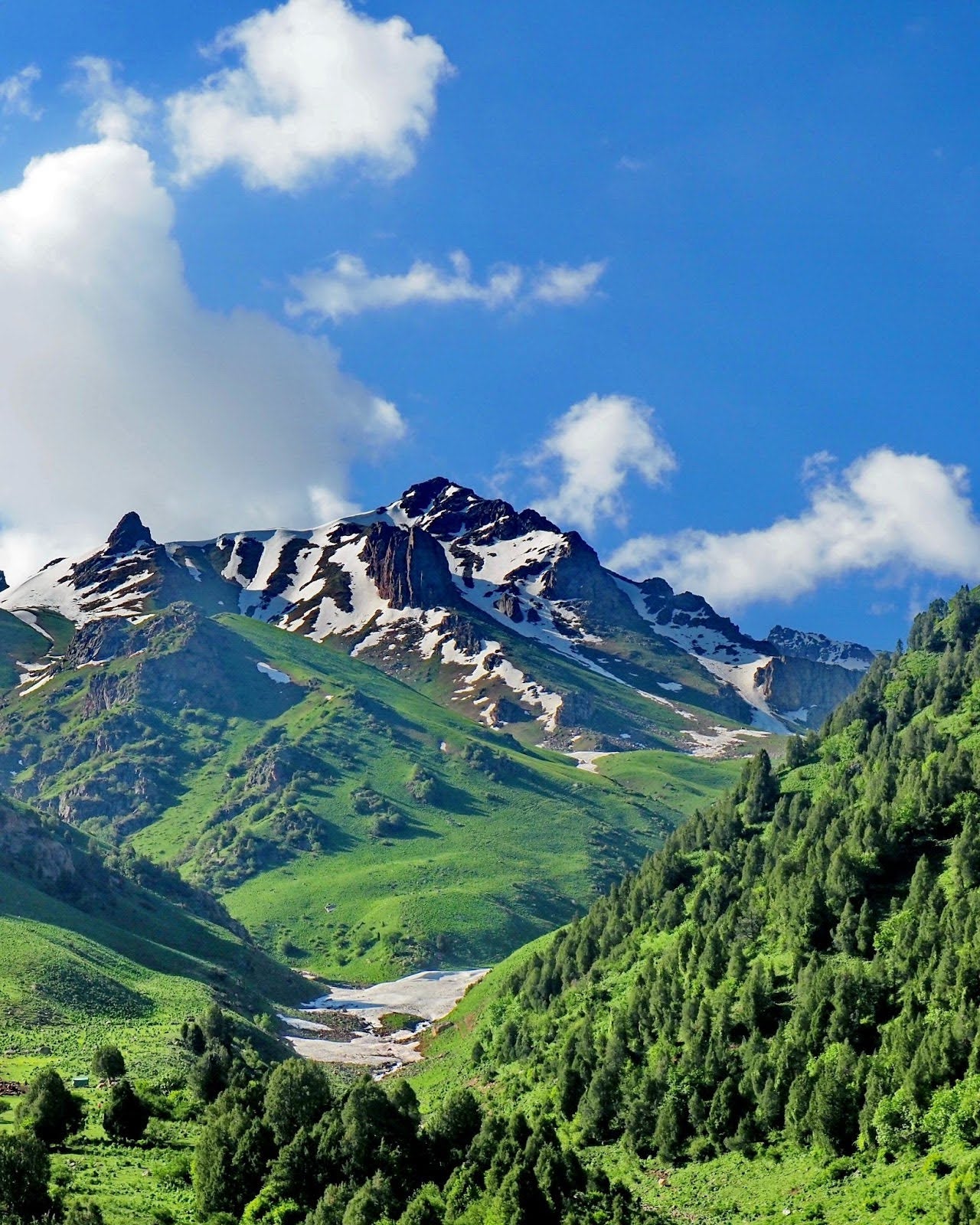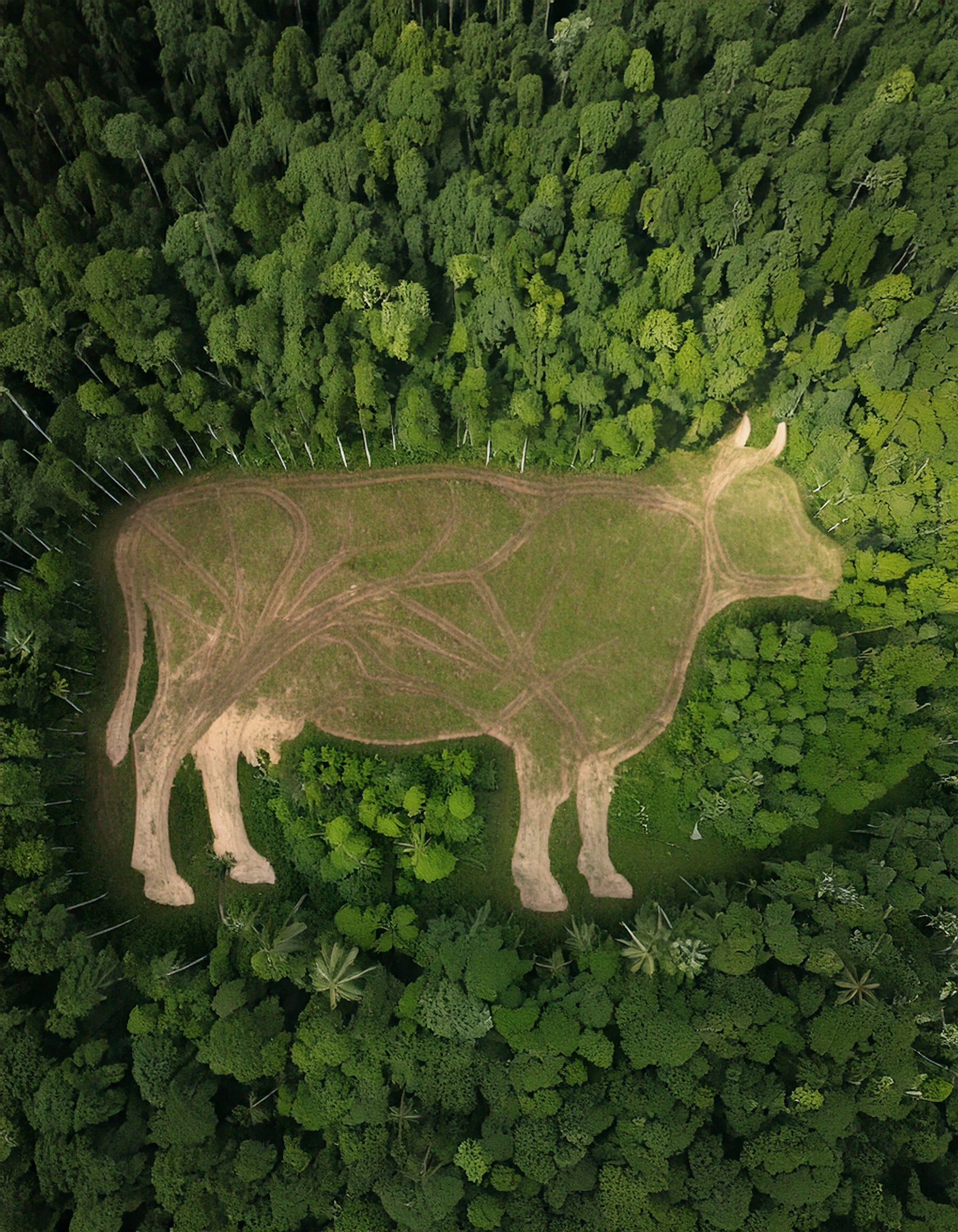Global Organizations Urge Government to Prohibit Construction of Small Hydropower Projects Endangering Critically Important Rivers and Rare and Endemic Wildlife

For immediate release
September 22, 2020
Leading conservation organizations around the world are urgently calling on the Federation of Bosnia and Herzegovina to turn a breakthrough resolution banning new small hydropower plants into law. The resolution, which holds no legal power yet, was initially passed June 23, but the deadline to permanently implement the resolution and permanently ban new small hydropower plants is Wednesday, Sept. 23. If the government fails to turn the resolution into law in the near future, they will again be putting at grave risk thousands of kilometers of Bosnia and Herzegovina’s wild rivers and the people and wildlife that depend on the waterways.
“This is an opportunity for Bosnia and Herzegovina to set a powerful example and become Europe’s leader in protecting some of the most intact and biodiverse rivers on the continent,” said Barney Long, senior director of species conservation at Global Wildlife Conservation. “We were encouraged by the recent resolution to protect the rivers, but for this to make any real difference, it must now be signed into law. Otherwise these small hydropower plants are going to continue to cause irreversible damage to the freshwater-dependent wildlife and people that live there, altering the balance of these ecosystems that contribute to the overall health of our planet.”
The rivers between Slovenia and Albania, including those in Bosnia and Herzegovina, are considered the most important hotspot for threatened freshwater biodiversity in Europe. Sixty-nine fish species in these rivers live nowhere else in the world. The Balkan Rivers—known as Europe’s “blue heart”—are home to marble, softmouth and prespa trout; the endangered huchen (or Danube) salmon; the endangered Balkan lynx; and the endangered white-clawed crayfish. They provide critical spawning habitat for many of the 113 endangered freshwater fish species in the Balkans.
The Balkans’ rivers continue to face an onslaught of small hydropower plant construction, including in protected areas, with plans for 3,000 dams to be constructed in the region. The dams bring with them the construction of access roads, tunnels, bridges, and transmission lines, with an influx of other human activities that require tearing down the forests around the rivers and that threaten the animals that live there. According to freshwater experts, if this is allowed to continue, at least 10 percent of all European freshwater fish species will go extinct or will be pushed to the brink of extinction.
The International Union for Conservation of Nature Freshwater Biodiversity Unit is currently reviewing proposals for 11 freshwater Key Biodiversity Areas in Bosnia and Herzegovina, with the potential for more, underscoring that these sites are globally important for the health of the planet and for the persistence of biodiversity. Yet in Bosnia and Herzegovina, 436 small hydropower plants have either recently been built, are under construction, or are planned.
The projects are driven by local and foreign investors, with diverse financial support, including subsidies for renewables. Some investors use the argument that hydropower can help Bosnia and Herzegovina meet its goal of 40 percent renewable energy (one of the highest targets in Europe) to get the country a step closer to joining the European Union. Although current small hydro plants in Bosnia and Herzegovina only produce around 3 percent of the country’s annual energy and come at a huge environmental cost, the government has continued to grant permits and subsidies for these new small and medium hydro projects that have a negligible “renewable energy” contribution at a huge environmental cost.
“Bosnia and Herzegovina politicians see firsthand that small hydro evokes a visceral reaction across the country,” said Marsela Pecanac, founder of Atelier for Community Transformation – ACT. “Broad public support for rivers has swelled, energized by the local communities ready to defend their rivers with their lives. The politicians now have a unique opportunity to set a powerful example for the Balkans and Europe and ban all new hydro permanently with one swift action, creating a legacy for generations to come.”
Not only do the hydropower dams destroy the rivers and landscape around them, but they also divert and pollute water, and restrict access to clean drinking water for local communities and for use in agricultural practices and other livelihoods. The rivers also offer an opportunity for sustainable income through ecotourism, an industry that depends on healthy, intact rivers. And many Bosnia and Herzegovinia residents consider the rivers a part of their identity. Across the country, local communities, such as those around Neretvica and Kruščica rivers, have been rising up and holding protests, often forming human walls at construction sites to prevent bulldozers from starting the work.
“Whenever I visit the Balkan rivers, I am overwhelmed by the beauty and its richness,” said Ulrich Eichelmann, coordinator of the Blue Heart campaign from Riverwatch. “But what strikes me even more, is that people stand up for their rivers and streams—they don’t fight for money or fame, they fight for their rivers, their homeland and their future. This also is unique in today’s world. But these people need the help from all over the world. We must unite to save the Blue Heart of Europe.”
In addition to calling on the government of the Federation of Bosnia and Herzegovina to formally ban the construction of small hydropower plants, the group of conservation organizations urges the other government entity in Bosnia and Herzegovina, Republika Srpska, to pass a similar law. After the Federation of Bosnia and Herzegovina initiative, Republika Srpska had also proposed a similar resolution earlier this year for a temporary ban of all small hydropower projects in Bosnia and Herzegovina, but eventually the National Assembly voted against it, despite significant local community pressure.
The organizations putting out the call are from a broad coalition including: 2020 Action, American Rivers, Arnika, Atelier for Community Transformation – ACT, CEE Bankwatch Network, the Coalition for the Protection of Rivers of Bosnia and Herzegovina, David Brower Center, EarthAction, Earth Law Center, EuroNatur Foundation, Freshwater Life, Global Wildlife Conservation, International Rivers, the International Union for Conservation of Nature Species Survival Commission Freshwater Fish Specialist Group, the IUCN SSC Freshwater Conservation Committee, Institute for Environmental Security, Rainforest Action Network, The Redford Center, Riverwatch, Save the Blue Heart of Europe, Shoal, the World Fish Migration Foundation, World Future Council, and WWF.

Additional Quotes
Brent Blackwelder, president emeritus, Friends of the Earth U.S.
"The United States is abandoning building big dams and instead is removing dams in order to restore fisheries. Over 1,500 dams in the U.S. have been removed to save remarkable rivers and wildlife habitat."
Darryl Knudsen, executive director, International Rivers
“Our earth is under assault, and we need to protect our wild rivers. The first time I saw the turquoise waters of the Soca river, my heart nearly stopped at its beauty. I hope someday also to visit the storied rivers of Bosnia...if they are still there. I am heartened by the popular and courageous resistance the Bosnian people continue to display to preserve their heritage rivers. And the Bosnian government has shown foresight with its resolution. Now is the time to codify the foreseen protections into law. Let’s remember: hydro is NOT green power. Through methane emissions, dam reservoirs emit 2-3% of global greenhouse gas emissions, the equivalent of the climate impact of the entire global airline industry. Meanwhile, rivers provide the most biodiversity-rich habitat on the planet. If you want to protect the systems of life on earth for generations to come, there isn’t much you can do that’s better than stopping a dam. Wind and solar are much more sustainable. We must act; the time is now.”
Jörg Freyhof, IUCN Freshwater Fish Specialist Group Steering Committee and regional chair for Europe
“The massive development of micro hydropower plants through the Balkan region will significantly affect many of the smaller tributaries that are valuable spawning and feeding habits for many species of fishes. The FFSG has worked with the Save the Blue Heart of Europe initiative for many years in looking for solutions to address this issue, and fully support this initiative.”
Pippa Gallop, southeast Europe energy advisor, CEE Bankwatch Network
“The hydropower boom in the Balkans is truly “death by a thousand cuts” for the region’s stunning rivers. Cutting the region’s vast energy wastage and unlocking its rooftop solar potential alone would contribute much more than small hydropower has.”
Ian Harrison, co-chair, IUCN SSC Freshwater Conservation Committee
“This call for a ban on small hydropower plants is an opportunity to make a truly positive impact on the way we manage and conserve our rivers in Europe. It represents a critically needed, forward thinking, investment not just in conservation, but an investment in the full range of ecosystem services that these rivers supply in support of nature and the people who rely on them and their associated habitats.”
Lejla Kusturica, activist and director of Foundation Atelier for Community Transformation – ACT
“One of the hardest and most painful injustices currently happening in Bosnia and Herzegovina is what’s happening to our environment. These rivers are the heart of our communities. In the past few years, our country has become a true hub of resistance, inspiring not just the region, but the rest of the world.”
Eduardo Noboa, senior programme manager climate energy, World Future Council
“Hydroelectric plants have intertwined and complex impacts which could generate more costs than benefits. There are many cases and examples from other regions in the world where there are innumerable water infrastructure projects that have caused significant impacts on ecosystems, people, livelihoods and culture. Instead of investing more trillions on high-risk hydropower projects, ambitious programmes for deployment of decentralised and distributed non-conventional renewable energy should be promoted where needed.”
Annette Spangenberg, head of project unit, EuroNatur Foundation
“The rivers of the Balkans are a European treasure, one we cannot afford to lose. We support the local communities in their fight for their rivers and will make sure that their voices will be heard all over Europe.”
Bernie Tershy, Freshwater Life
“Dam construction has peaked in the world’s wealthy countries and more old dams are being removed than new ones constructed. Bosnia and Herzegovina shouldn’t be pursuing an energy development strategy that the EU and North America have largely rejected.”
Jill Tidman, executive director, The Redford Center
“This is a critically important moment in which we all must take a stand to protect what remains of our intact ecosystems and waterways, and the lives that depend on them. We are proud to stand with these distinguished organizations in this effort.”
Wouter Veening, president, Institute for Environmental Security
“By enshrining its forward-looking resolution into law, the Federation of Bosnia and Herzegovina will give its wild rivers the long-term protection they deserve and thus contribute to the ecological well-being of the Balkans, the wider European region and the world as a whole.”
Lois Barber, executive director, EarthAction
“Rivers are the lifeblood of our planet. We need to keep them healthy and free-flowing!”
Dragana Skenderija, coordinator, the Coalition for the Protection of Rivers Bosnia and Herzegovina
"Private investors invest money in small hydropower plants and make a profit, while the people do not benefit from their construction. Ultimately, only great damage is created for the environment, and financial losses through taxes and subsidies on renewable energy sources turn into profit for private companies." The ban on the construction of SHPPs in Bosnia and Herzegovina and the abolition of incentives for SHPPs are the most important demands that the Coalition for the Protection of Rivers of BiH demands from decision makers.”
Zuzana Vachůnová, activist and coordination of activities in Bosnia and Herzegovina, Arnika
“The people of Bosnia and Herzegovina are not only protecting the last European wild rivers, but also the rule of law in their country. Local communities must have a say about the projects that affect them, but this is not happening; the small hydropower plants are mostly permitted without proper involvement of the locals and thus violate the basic principles of environmental democracy. We stand with people of Bosnia and Herzegovina and call on the governments to finally protect the valuable nature and the basic rights of the local communities.”
Herman Wanningen, founder and managing director of the World Fish Migration Foundation
"While Europe has set a new biodiversity target to restore 25.000km of free-flowing rivers by removing dams, it seems illogical to keep building more dams in rivers which are still free-flowing."
Grant Wilson, executive director and directing attorney, Earth Law Center
"Hydropower is not truly 'renewable' energy because it permanently devastates aquatic ecosystems and species, and therefore should not be part of Europe's renewable energy future. We urge the Federation of Bosnia and Herzegovina to follow through with its ban of small hydropower plants in order to create a future in which rivers and local communities thrive together in harmony."
# # #
Photo: Aerial photo of Neretva River, under threat from the construction of small hydropower plants. (Photo by Dinno Kasalo)
Global Wildlife Conservation
GWC conserves the diversity of life on Earth by safeguarding wildlands, protecting wildlife and supporting guardians. We maximize our impact through scientific research, biodiversity exploration, habitat conservation, protected area management, wildlife crime prevention, endangered species recovery, and conservation leadership cultivation. Learn more at https://globalwildlife.org
2020 Action
2020 Action informs and inspires Americans to turn their concern, passion, and outrage into meaningful action for a more just, peaceful, and sustainable world.
American Rivers
American Rivers protects wild rivers, restores damaged rivers, and conserves clean water for people and nature. Since 1973, American Rivers has protected and restored more than 150,000 miles of rivers through advocacy efforts, on-the-ground projects, and an annual America’s Most Endangered Rivers® campaign. Headquartered in Washington, DC, American Rivers has offices across the country and more than 200,000 members, supporters, and volunteers. American Rivers maintains a positive work environment with a culture of learning, support and balance. For more information please visit www.americanrivers.org.
Arnika
Arnika is a Prague-based non-governmental organization with many years of experience in promoting environmental justice and a world without toxic pollutants and with natural and living rivers. See more at: www.english.arnika.org
Atelier for Community Transformation – ACT
ACT supports activists and artists in the Western Balkans by helping them rebuild their communities and by challenging systemic injustice through grassroots networks and strategic campaigns.
CEE Bankwatch Network
Bankwatch is the largest network of grassroots, environmental and human rights groups in central and eastern Europe. It monitors public finance institutions that are responsible for hundreds of billions of euros in investments across the globe. Together with local communities and other NGOs Bankwatch works to expose their influence and provide a counterbalance to their unchecked power.
The Coalition for the Protection of Rivers of Bosnia and Herzegovina
The Coalition for the Protection of Rivers of Bosnia and Herzegovina was established in June 2016 by civil society organizations and individuals who love nature, monitor plans for the construction of hydropower plants and advocate the development of tourism, traditional and complementary activities that can provide more diverse jobs and achieve greater development of local communities. The role of the Coalition is to provide support for the local population to get involved in decision-making in a timely manner and to adopt a position on the construction of hydropower plants in Bosnia and Herzegovina. The Coalition for the Protection of Rivers of BiH, which currently gathers over 20 organizations from all over the country, and the number of members, continues to grow.
David Brower Center
The David Brower Center provides a home for the environmental movement by advocating for the beauty, diversity and ecological integrity of Earth. The Brower Center accomplishes this mission through a distinctive combination of permanent infrastructure and ongoing programs in a unique institution that: Informs the public about the environmental challenges we face and the bold actions we must take if ours is to remain a living planet; inspires people to recognize their own power and responsibility to act on behalf of the Earth; and connects individuals and organizations dedicated to social equity and ecological sustainability.
Earthaction.org
EarthAction is a global action network uniting people and organizations for peace, justice and the environment.
Earth Law Center
Earth Law Center (www.earthlawcenter.org) is a 501c3 organization that works to transform the law to recognize and protect nature’s inherent rights to exist, thrive and evolve. They recently released the first-ever law school coursebook on “Earth law,” which is an emerging body of ecocentric law, including the Rights of Nature.
EuroNatur
EuroNatur is a nature conservation foundation based in Radolfzell, Germany. Together with our Europe-wide partner network we create solutions that allow humans to live and work in harmony with nature. Our aim is a powerful network committed to protecting our European natural heritage.
Freshwater Life
Freshwater Life works to save the world's most endangered freshwater species from extinction by addressing the threat of invasive species. We partner with local communities, conservation practitioners, and international experts to build capacity and conduct effective conservation action on the ground. For more information: https://fwlife.org/
International Rivers
American Rivers believes a future of clean water and healthy rivers for everyone, everywhere is essential. Since 1973, we have protected wild rivers, restored damaged rivers and conserved clean water for people and nature. With headquarters in Washington, D.C., and 300,000 supporters, members and volunteers across the country, we are the most trusted and influential river conservation organization in the United States, delivering solutions for a better future. Because life needs rivers. Learn more: https://www.internationalrivers.org/about/
Institute for Environmental Security
The Institute for Environmental Security (IES) is an international non-profit non-governmental organisation established in 2002 in The Hague, in order to increase political attention to environmental security as a means to help safeguard essential conditions for peace and sustainable development. The Institute's mission is: "To advance global environmental security by promoting the maintenance of the regenerative capacity of life-supporting eco-systems. Learn more: https://www.envirosecurity.org/what-we-do
IUCN SSC Freshwater Fish Specialist Group (FFSG)
The FFSG was established in 2004 with its goal to achieve conservation and sustainable use of freshwater fishes and their habitats. We do this though generating and disseminating sound scientific knowledge; creating widespread awareness of the values of freshwater fishes, and influencing decision-making processes at all levels.
IUCN SSC Freshwater Conservation Committee (FCC)
The FCC was established in 2010 in order to urgently address the global freshwater biodiversity crisis, by drawing attention to issues concerning freshwater biodiversity conservation.
Rainforest Action Network
Rainforest Action Network preserves forests, protects the climate and upholds human rights by challenging corporate power and systemic injustice through frontline partnerships and strategic campaigns. https://www.ran.org/
Riverwatch
Riverwatch is a society for the protection of rivers. Our ambition is to preserve the last unimpaired rivers as well as restoring those already canalized or dammed.
The Redford Center
Co-founded in 2005 by Robert Redford and his son James Redford, The Redford Center uses impact-driven film and media to build the movement toward environmental justice, protection and repair. The nonprofit organization produces, funds and supports a diverse portfolio of filmmakers and projects that represent often unheard but necessary perspectives taking action to preserve and restore the planet. https://redfordcenter.org/
Save the Blue Heart of Europe
In cooperation with local partners, the NGOs EuroNatur and RiverWatch launched the Save the Blue Heart of Europe campaign to save the unique rivers of the Balkans by preserving the most valuable streams and stretches with regard to ecology and biodiversity.
Shoal
Shoal is a global collaborative initiative to save and recover populations of the most threatened freshwater species around the world. Rivers, lakes and wetlands are home to 12% of all known species, and provide essential drinking water to humans everywhere. Yet freshwater biodiversity is declining faster than that of marine or terrestrial habitats. With 1 in 3 freshwater species threatened with extinction, and an 84% decline in freshwater populations since 1970, there is an urgent need for ambitious and determined action. Shoal was established to give critical attention to these species that for so long have been overlooked and underfunded. shoalconservation.org
World Fish Migration Foundation
Founded in 2014, the World Fish Migration Foundation (WFMF) is an international organization with a mission to save migratory fish in rivers. The Foundation harnesses global attention for the challenges migratory fish face through a multitude of international, collaborative projects aimed at advocating for obsolete dam removals, and supporting initiatives that open up important swimways. For more information, visit www.worldfishmigrationfoundation.com
World Future Council
The World Future Council works to pass on a healthy and sustainable planet with just and peaceful societies to our children and grandchildren. To achieve this, we focus on identifying, developing, highlighting and spreading effective, future-just policies for current challenges humanity is facing and promote their implementation worldwide.
WWF
WWF is an independent conservation organization, with over 30 million followers and a global network active in nearly 100 countries. Our mission is to stop the degradation of the planet's natural environment and to build a future in which people live in harmony with nature, by conserving the world's biological diversity, ensuring that the use of renewable natural resources is sustainable, and promoting the reduction of pollution and wasteful consumption. Visit panda.org/news for the latest news and media resources; follow us on Twitter @WWF_media
Contact
Lindsay Renick Mayer
Global Wildlife Conservation
512-686-6225
Devin Murphy
Global Wildlife Conservation
512-686-6188
Lindsay is the Director of Media Relations for Re:wild and has a particular interest in leveraging communications to inspire conservation action. Lindsay is passionate about species-based conservation and finding compelling ways to tell stories that demonstrate the value of all of the planet’s critters, big and microscopic.




